When high finance comes home to the farm
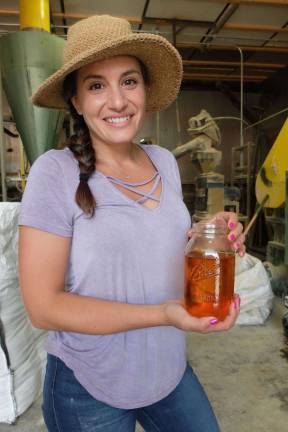
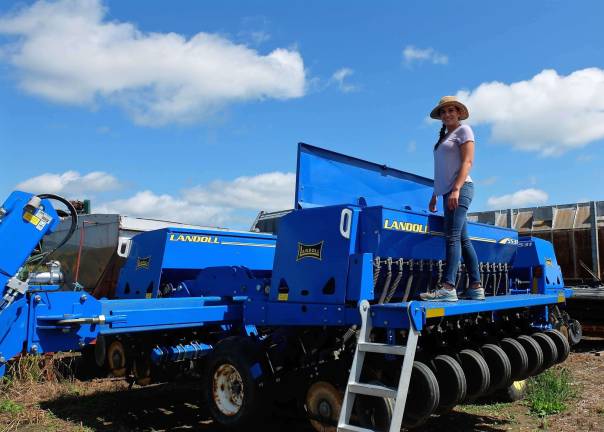
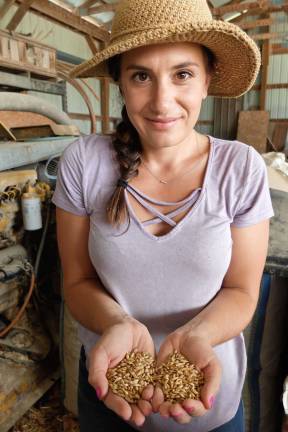
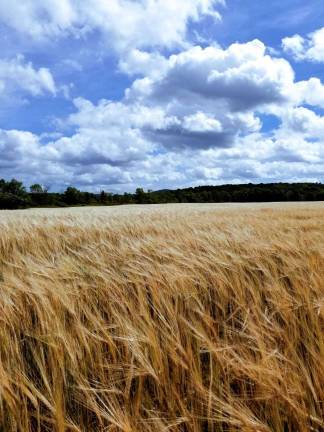
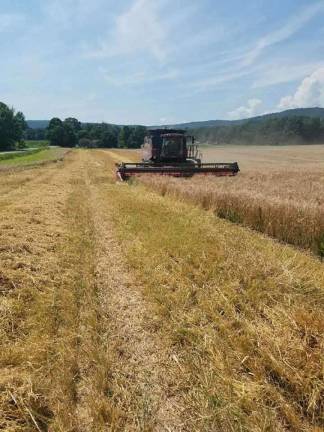
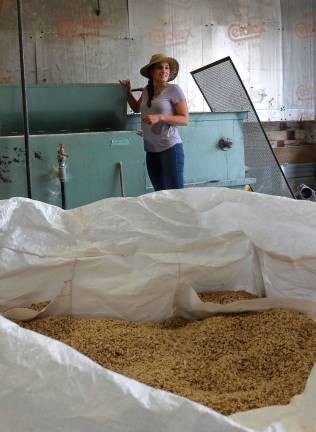
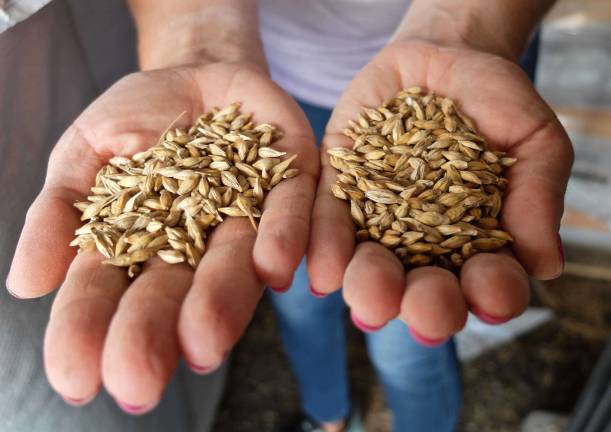
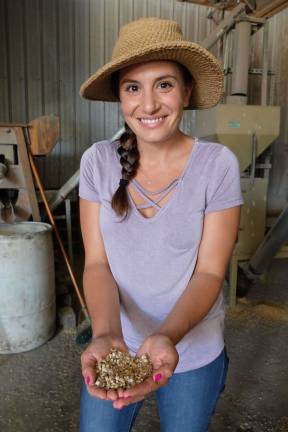
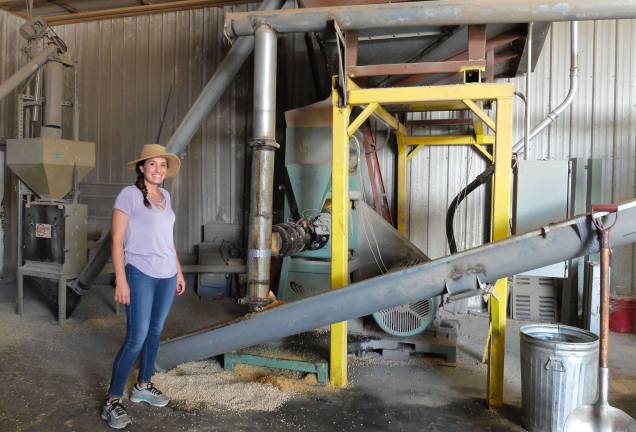
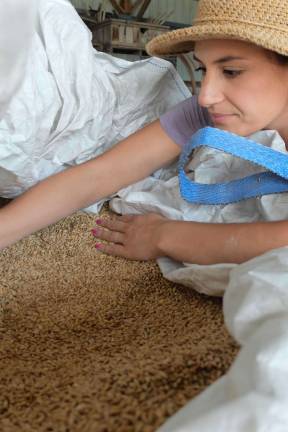
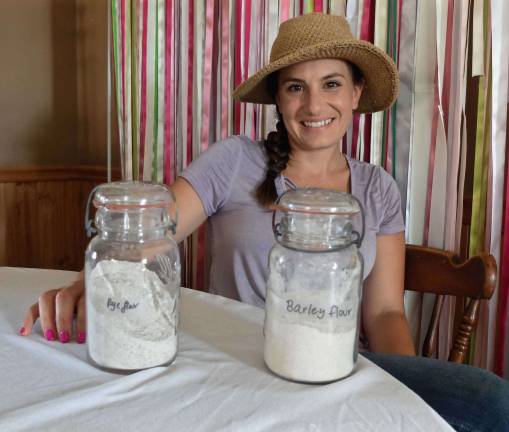
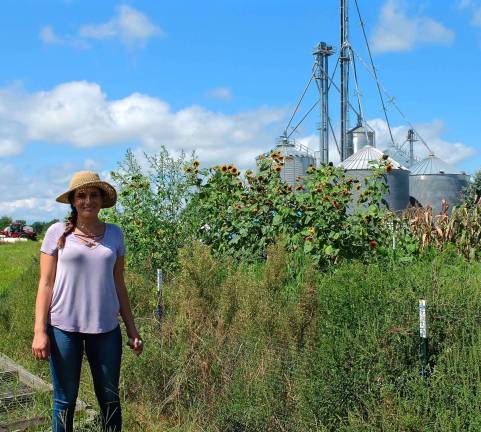

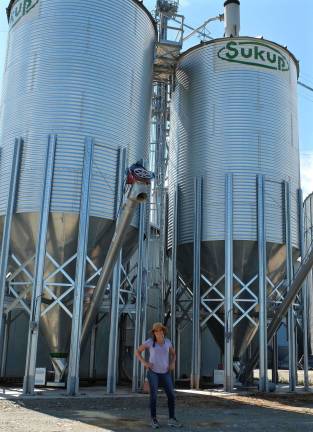
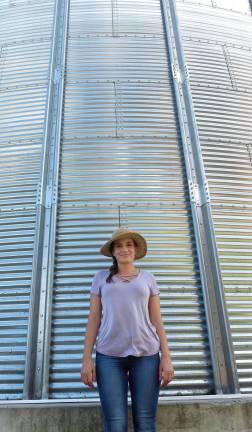
Building the ‘Amazon of craft beverage ingredients’
When I arrive, Rachel Czub is arranging flowers from her garden on the wooden market stand in front of the farmhouse where she grew up. In the background, silver grain storage silos gleam in late August sun. There’s a low hum of machinery and the mealy smell of warm grain cooking. That would be soybeans, she tells me, welcoming me into her kitchen, where she launches into the story of how she found herself in the place she least expected.
Czub graduated in 2008 from Cornell University with a degree in applied economics and management, and no thought of returning to the family farm in Rensselaer County. But seven years as a successful investment banker — first at Bank of America in Houston, then a French multinational banking company Societe Generale — left her burnt out, looking for a more meaningful life, and ready to be her own boss. She traded the boardroom for the family business: WestWind Ag, the animal feed farm the Czubs had established in 1983 in Schaghticoke, NY.
In the decade she’d been away, the business had expanded. In addition to growing 2,000 acres of corn and soybeans, they dry and store grain for other farms, run a sand mining business, and have a fleet of trucks to do custom hauling. Relying on internationally traded commodities, however, puts the farm at the mercy of cheap imports, and finding enough affordable cropland in the region makes it hard to compete.
A businesswoman at heart, this is where Czub saw the first big opportunity. What if they crushed their own soybeans? She proposed that her dad and uncle invest in machinery to process the soybeans mechanically, free of the harmful chemical hexane used in processing soybean meal around the world. This way they could own the whole process: from extruding the soybeans into oil and meal; selling the high-protein meal to livestock farms and selling the oil to institutional markets; and now with tankers, delivering the oil, too.
By the time the new machine was churning, Czub had found her passion: to create a regional agricultural market that is less linked to swings in international commodity prices. “How can we further diversify our planting operations?” she asked herself. “That’s what brought me to the brewer’s and distiller’s grains.”
There has been an explosion of breweries and distilleries in New York State in the last few years, all requiring a supply of malted barley, corn, and rye. “More and more people want to know where their food’s coming from,” said Czub, “but it’s just started to make its way down to non-perishables, like grains.”
Locally grown specialty grains is a market that’s pretty much guaranteed to grow exponentially. That’s because farm breweries have to use a certain amount of New York State grown ingredients: currently it’s 20 percent, but in 2019 that goes up to 60 percent, and in 2024 it trips to 90 percent.
Farmers have been catching onto growing the specialty grains, but slowly. In 2017 Czub convinced her dad and uncle to self-fund test crops of barley, keeping a weekly journal of its progress and any issues that arose. In October she sold the first load to malt houses and by February she was sold out.
The market was there, clearly, but the growing would prove to be a trickier business. Maltsters need to trick the grain into germinating, freeing the starch for the brewing process. Any pre-sprouting due to warm, moist conditions in the field reduces the viability of the grain, making it unsuitable for brewing. “The biggest risk is the weather and that’s 100 percent out of our control,” says Czub.
This year’s test crop of spring barley didn’t fare so well. Drought at seeding time produced more protein and less starch in the grain, and then dreaded damp led to pre-sprouting in the field––not good for brewers. “This year the weather for our spring grains was quite literally the opposite of the ideal growing season,” Czub said. She’s found a secondary market for it, though. Half will be sold to distillers for grain mash, and the other half as a high-protein animal supplement.
The winter barley trials went better. “I suspected that winter barley would be a more robust, less sensitive crop in New York State,” said Czub. She was right. But now she faced another hurdle. Demand was far outstripping supply for locally grown specialty grains, and already they’d outgrown the storage capacity at WestWind. Her finance career had taught her a few things: “Make sure to look, not just as what’s right in front of you, but right through the supply chain. Identify for your customers’ issues that they don’t even know they’re having.”
She asked the maltsters what they needed––a reliable, year-round supply of clean, high quality grain, delivered in customized quantities. It was clear as day: what they needed was a grain hub. She started putting together a business plan, figuring out where to source grain locally, process it minimally, store it, and ship it when the customer needed it.
Czub had an ace up her sleeve. A couple of years earlier, her dad and uncle had the opportunity to purchase a 300-acre farm in Moreau in Saratoga County from a generous landlord. It’s an ideal location for a grain hub, with room for circulating dryers, a barn for cleaning and sorting, silos for storage, grinders to process grain for distillers, and proximity to transportation routes on an exit off the Northway. So was born Project Z-Hub, which Czub calls the future “Amazon of craft beverage ingredients.” Ever on the lookout for ways to add value, Czub envisions the grain hub’s rolling acreage as an idyllic agritourism destination, with a malt house, brewery, and distillery with viewing and tasting rooms, a farm to table restaurant and an outdoor concert venue. The state jumped on board, awarding an economic development grant to the project’s $1.5 million first phase.
Then came the curve balls. Working capital for the project from WestWinds’ animal feed business has taken a hit as milk prices have crashed, making it difficult for dairy farmers to pay their bills on time. Instability in international commodity markets, and new tariffs on everything from soybean exports to imported steel needed to build storage silos, have increased the Z-Hub budget.
A clear-eyed Czub can see that success is not the only possibility. “The worst thing that can happen is we do this and we can’t pull the whole thing off and then the project is a flop,” she said. But she’s been training for this. “When I worked for Societe Generale, I had a mentor who took a lot of time to groom me to be his protégé. He taught me about how detail oriented you need to be, without getting stuck in the details. In agriculture, left and right there are things that are out of your control.”
Czub is biding her time, working with farmers to grow specialty grains and supply them to maltsters, while keeping her eye out for a strategic partner. The pressure may have ratcheted back up to investment-bank level intensity, but now Czub knows she’s doing something that matters. “It’s time to create sustainable regional food systems,” she said. “And it’s time for our young professionals to come home and invest in their rural communities.”
So did Czub meet her new husband, Sean McDermott, a lawyer in Albany, when she returned to the farm? She laughs. The social scene was “dismal at best,” she said. They connected through Bumble, the on-line dating app where women make the first move. Sounds about right for an entrepreneurial 21st century farmer.